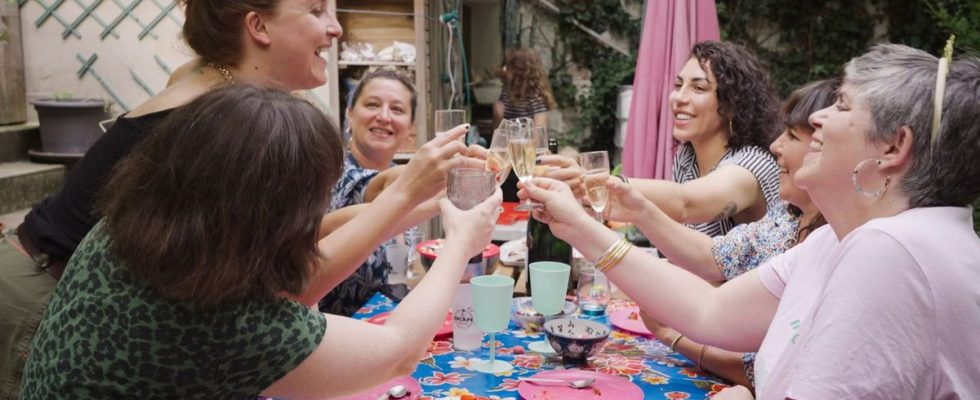Anne Cutaïa is 43 years old. She grew up surrounded by women, without there really being any taboo subjects. However, when she thinks of menopause which is inevitably approaching, the evidence becomes clear. “I feel like I missed some information. I don’t know what awaits me,” she admits. In “Ménopositivitis”, a documentary broadcast by Téva, the journalist speaks freely, in the first person, about a subject on which women, in general, prefer to remain silent. Probably a little less in recent years. Throughout her work of demystification, she interviews her mother, her friends, those who have chosen to evoke, in books or on Instagram, this stage of their life which, in addition to the cessation of periods, is accompanied hot flashes, weight gain, mood swings… She also goes to meet Lio, who confides in what she herself has experienced, or Océan, an artist who talks about menopause for trans men . In short, a way like any other to put words to a subject rarely discussed publicly.
You say you have been briefed on everything in your life as a woman except menopause. What do you think explains this silence?
Taboo and fear. Today, periods are starting to no longer be a taboo, we talk about them, we even consider menstrual leave. In my opinion, menopause is the last great taboo that feminists must tackle because we don’t discuss it, we are afraid of it. Even among women, there are few who can discuss this subject. If we talk about it, we sign our entry into old age.
Because of this silence, was it difficult to find people who agreed to testify?
I mostly met women who spoke to me freely. My friends and my family quickly agreed to play the game, which might not have been an easy thing. But there were also women who told me that they didn’t feel like exposing this thing. I had the impression that those who could talk about it were those who had already done work, who had already freed themselves a little from the gaze of others, whether within their family or their professional life. They had a lot of enthusiasm for this project and for participating in it.
Hearing them in the documentary, we have the impression that what initially destabilized them has become a strength…
Completely. They say that what doesn’t kill you makes you stronger. This may seem hyperbasic to say but it’s true. As Sophie Kune (creator of the Menopause Stories Instagram account) notes, when we arrive at this point in our lives, we have already gone through a lot of pain inherent to existence and this thing comes to touch us in our body. female. So indeed, either you accept that it is a form of end, or it is a rebirth. Then, today, as we become mothers later, women are faced with menopause even though they have young children. For our mothers, this usually happened at the age when she became a grandmother. Women who have a child after their forties will go through major life cycles more closely. It’s difficult for them. Understanding how this plays out also allows you to reinvent yourself.
What led you to interview Lio on this topic?
I heard his interview in “Boomerang” on France Inter and I found it powerful to affirm that reinvention, at that age, can happen in many different ways. Then, for women born in the 80s like me, Lio is a symbol of emancipation. Even today, it continues to be very innovative in this area. It really touched me. When I contacted her to tell her about the project, she immediately told me that it was great and that she wanted to be part of it.
More and more women are starting to break the silence, right?
Since MeToo – so it’s been six years – the word has opened up on a lot of subjects which are essential for feminist progress, and ultimately for all of humanity. We reconnect with a fairly original thought, considering that entering this period of life allows us to access something else, to apprehend things in another way, we free ourselves from bullying, from constraints.
What did you not expect in what you were entrusted with?
I didn’t expect the loneliness. Loneliness in the face of questioning, knowing how we are going to overcome this. This really surprised me. We are all affected, and ultimately, when it happens, we feel very isolated. In this way, opening up the floor on these issues also allows you to feel less alone due to the sharing of experiences, it allows you to recognize yourself, and to create a community of support without it being tangible. I think it’s the same as the rules, we’re all in this together.
Did making this documentary also allow you to approach this period of your life in a lighter way?
Completely ! And strangely I think that this also contaminated my companion who understood what was happening. My friends say it in the documentary: questioning yourself allows you to lighten up. When we put words, we realize that there are many things that can be mitigated. Not speaking, remaining silent, is what increases the symptoms. Speaking is the first action to do yourself good.

